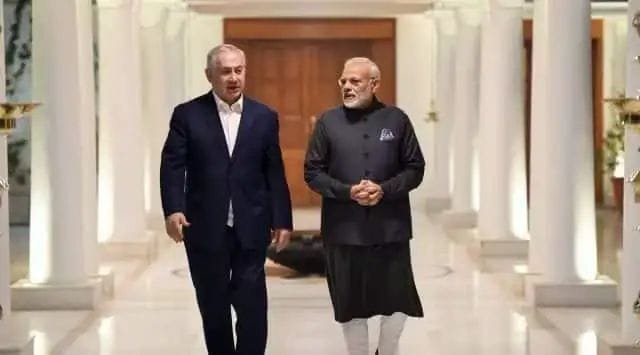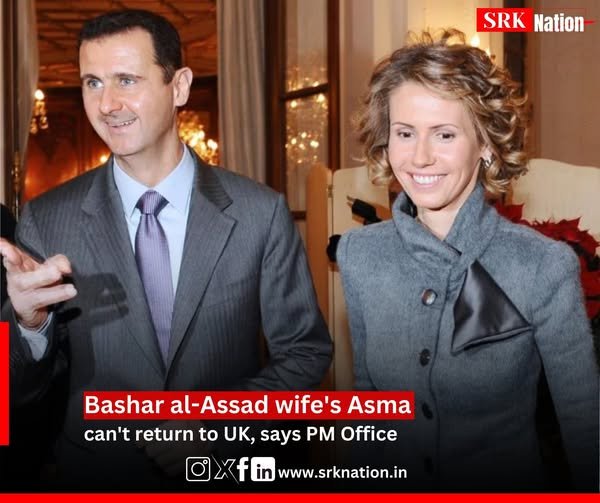Israel-Palestine Conflict: Four days after Hamas teams infiltrated Israel to carry out large-scale killings prompting retaliatory Israeli air strikes across the Gaza Strip, the silence of the Ministry of External Affairs has been noticed by many in the region, especially the West Asian countries.
For Delhi, the diplomatic challenge is to come up with a statement at a time when cracks are visible in the Arab world, for the first time, over the Hamas attacks on Israel, especially the killing of civilians.
The UAE and Bahrain, which signed the US-brokered Abraham Accords with Israel, have criticised the attacks by Hamas.
Diplomats, especially from the Arab countries, have noticed the MEA silence — the only tweets and the PMO/MEA statement so far have been about expressing solidarity with Israel, and the ‘terrorist attacks’ on Israel.
At least three diplomats from the Arab countries, including an ambassador, said they were expecting a more balanced and nuanced statement from the MEA.
Personal belongings including a child’s pram are seen on the road next to a car days after a mass infiltration by Hamas gunmen from the Gaza Strip, near Kibbutz Kfar Aza, in southern Israel, October 10, 2023. (REUTERS)
‘The Indian diplomats just crafted a fantastic (G20) joint communique which was a superb example of a diplomatic balancing act. They have been doing that for the last year-and-a-half on the Russia-Ukraine war. They have the skills, but we haven’t seen those skills in the last four days,’ a diplomat from one of the Arab countries told The Indian Express Tuesday.
In West Asia, India has deep strategic ties with Israel on the one hand, and Saudi, UAE, Qatar, Iran and Egypt – to name a few – on the other hand.
There are an estimated 90 lakh Indians living and working in the West Asia region, and India imports more than 50 per cent of crude from the region. It also has high ambitions in terms of connectivity projects, articulated recently during the announcement of the India-Middle East-Europe Economic Corridor.
So, it has to strike a balance between the two sides of the aisle in the deeply divided and polarised West Asia region.
For now, that is South Block’s defence. Sources said the Hamas attacks on Israeli civilians has divided the Arab world, and there is no united front there as well.
Consider the following:
The UAE late Sunday issued a statement slamming the Hamas attack as a ‘serious and grave escalation’. The UAE Foreign Ministry statement said it was ‘appalled’ by reports Israeli civilians were taken as hostages from their homes, but avoided criticism of Israel’s deadly strikes on Gaza.
‘Civilians on both sides must always have full protection under international humanitarian law and must never be a target of conflict,’ the ministry said.
Bahrain also criticised the attacks by Hamas, saying it constituted ‘a dangerous escalation that threatens the lives of civilians’.
The statement from the Bahrain Foreign Ministry also affirmed ‘Bahrain’s denunciation of the reported kidnappings of civilians from their homes to be taken as hostages’. It urged de-escalation of the violence that threatens regional security and stability.
The Israeli military today warned the over 2 million residents of Gaza that they should leave for neighbouring Egypt via the Rafah border crossing while they can, indicating an upcoming severity in retaliatory moves. Israel supporters hold flags in Paris, France. (Reuters)
This is different from the past. The entire Arab world would speak out in unison against Israel. Iran, of course, would also join in.
Saudi Arabia has tried to strike a balance, although it did mention ‘Israeli occupation forces’, and was perceived to be leaning towards Palestine – there was no condemnation of the Hamas attacks.
Countries like Qatar, Kuwait and Oman have been critical of Israel.
A statement by the Saudi Arabia Ministry of Foreign Affairs said it was ‘closely monitoring the unprecedented developments between various Palestinian factions and the Israeli occupation forces, resulting in an escalation of violence on several fronts’.
Riyadh called for ‘immediate cessation of the escalation’ between both sides and ‘the protection of civilians’.
It said Saudi Arabia had issued repeated warnings of a possible escalation in light of ‘the ongoing occupation and the deprivation of the Palestinian people of their legitimate rights, as well as the repeated deliberate provocations against their sanctities’.
Now, Delhi finds itself in an unenviable situation where it is torn between different sides: it has Israel which is a key strategic partner on one side, and a divided Arab world on the other side.
The MEA, which usually comes out with an official statement within hours or a day or two of an important global development of consequence such as this, has not made any official statement since Saturday.
The only two statements have been from the Prime Minister or his office. The PMO statement on the phone call between PM Narendra Modi and Israel’s PM Benjamin Netanyahu was reiterated by the MEA on Tuesday.
When the attacks took place on Saturday, the first tweet from Modi came at 4.44 pm: ‘Deeply shocked by the news of terrorist attacks in Israel. Our thoughts and prayers are with the innocent victims and their families. We stand in solidarity with Israel at this difficult hour.’
Modi’s second post on the issue came on Tuesday at 2.38 pm when he received a phone call from Netanyahu. ‘People of India stand firmly with Israel in this difficult hour. India strongly and unequivocally condemns terrorism in all its forms and manifestations,’ he tweeted.
Arab diplomats said the Indian PM’s statement on the phone call and tweets so far are perceived to be completely loaded towards Israel, with no nuancing of the situation at all.
Delhi believes that the attacks were so brazen and brutal — with horrifying images of women, children and elderly being killed and kidnapped — that any attempt to talk about the other side would be seen as pandering to the sentiments of the other side, and would offend the Israelis.
Officials said it was clear last Saturday who were the attackers and who were the victims, and there cannot be an equivalence on this.
The Indian establishment has adopted the view that Israel stood by India during its hours of crisis —be it the 1999 Kargil war or the 26/11 terror attacks in Mumbai — and India must stand shoulder-to-shoulder with Israel in its time of crisis.
However, Arab diplomats feel that there are ways to craft a nuanced statement at a time like this, when the counter-attack by the Israeli defence forces has already claimed more than 750 lives in Gaza.
A diplomat said that formulations like ‘cessation of hostilities’, ‘refrain from violence’ and ‘exercise restraint’ can be used to balance the statement.
One of the Arab diplomats said that a couple of embassies have raised the issue of lack of any statement from MEA with their counterparts in Delhi about a possible statement, and are waiting to hear from them.







